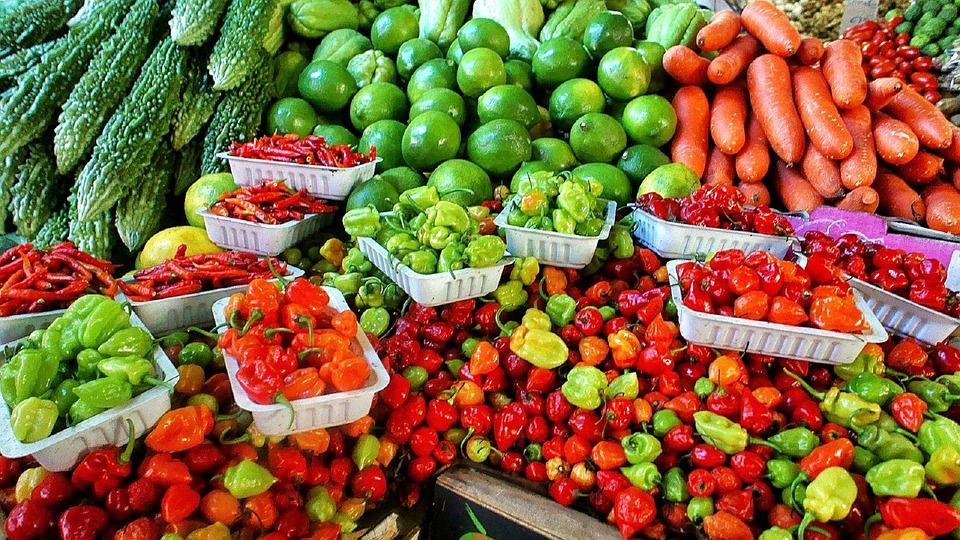Strengthening National Agriculture Health and Food Safety Councils
OECS Media Release
The OECS Commission is working with Member Countries to strengthen the recently endorsed National Agricultural Health and Food Safety Councils (NAHFSC) which will enhance their ability to implement Sanitary and Phytosanitary (SPS) measures to better safeguard citizens, animals and plants from diseases, pests, or contaminants across the OECS.
The project funded by the European Union 10th EDF Economic Integration and Trade of the OECS Region Project, successfully developed the framework after a series of consultations with Member States geared toward improving the agriculture health and food safety of the region.
Director General of the OECS, Dr. Didacus Jules said the the NAHFSC as a coordinating mechanism would improve the efficiency of agriculture health and food safety services at the national and regional levels for the direct benefit of every OECS citizen.
"The advances made under the new NAHFSC framework address two strategic objectives of the OECS Commission and that is assuring the security and well-being of our citizens and driving key economic priorities by adhering to the SPS measures consistent with the World Trade agreement" said Dr. Jules.
OECS Agriculture Program Officer Mr. George Alcee said the new arrangement involved all tiers of Government and relevant institutions engaged in Agriculture Health and Food Safety (AHFS) Services working together to ensure stronger alliances.
“We have worked to ensure there is strategic alignment and integration of Ministries and Agencies in the adoption of a systems approach to AHFS, which involves links with producers, the hospitality sector, agribusiness and the food industry”.
“The Commission has held two tier training and sensitization sessions in Saint Lucia from November 17 -18, 2016 to firstly sensitise policy makers of the relevant Ministries and Agencies comprising the Council and secondly to train technicians in a range of technical aspects relating to the NAHFS mechanism” said Mr. Alcee.
“The senior policy forums focused on:
A whole-of-Government approach, which defines cross sectorial government agencies working together for a common goal;
One Health concept (recognizes that human health is connected to animal health and the environment. It aims at improving well-being through the prevention of risks and the mitigation of effects of crises that originate at the interface between humans, animals and their various environments);
Consumer safety;
Return on investment for health and safety expenditure;
Looped value chains, which denotes a minimum waste value chain, which utilizes all waste;
Development through Dialogue Groups ‘Dgroups’ online platform linkages between leading international development organisations committed to supporting development efforts through dialogue and the OECS Commission and the Caribbean Agriculture Health and Food Safety Agency (CAHFSA);
Effective communication of Agriculture Health and Food Safety (AHFS) issues; and
Approved NAHFS Framework/Model
The technical training workshop addressed:
One Health Concept;
Local production and processing benefits;
Rapid Response Mechanisms;
Dgroups inclusion and operations; and
Health and Safety services interaction.
The training and sensitization sessions for senior policy makers and technocrats continue in the other Member States on dates to be confirmed.


